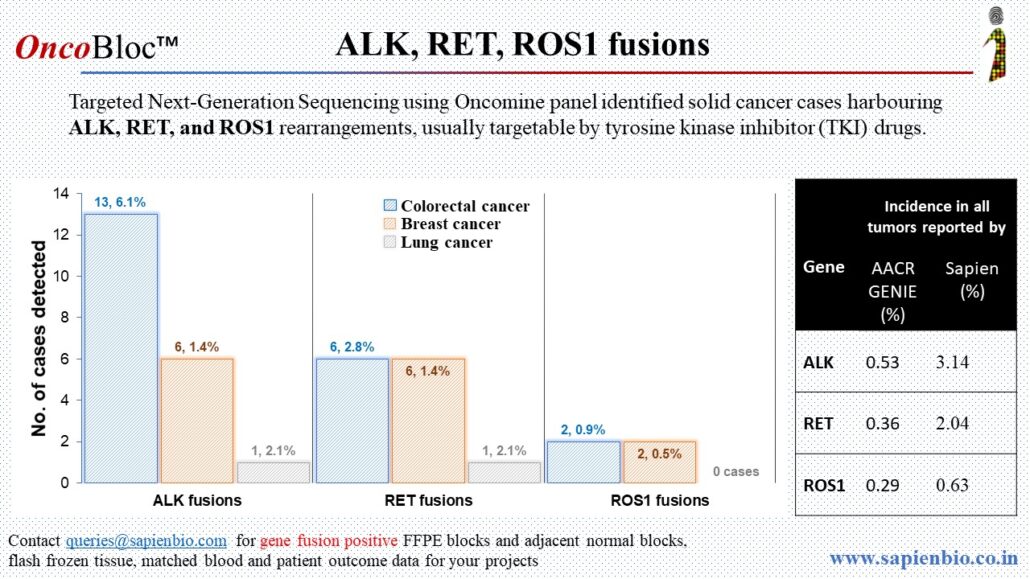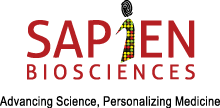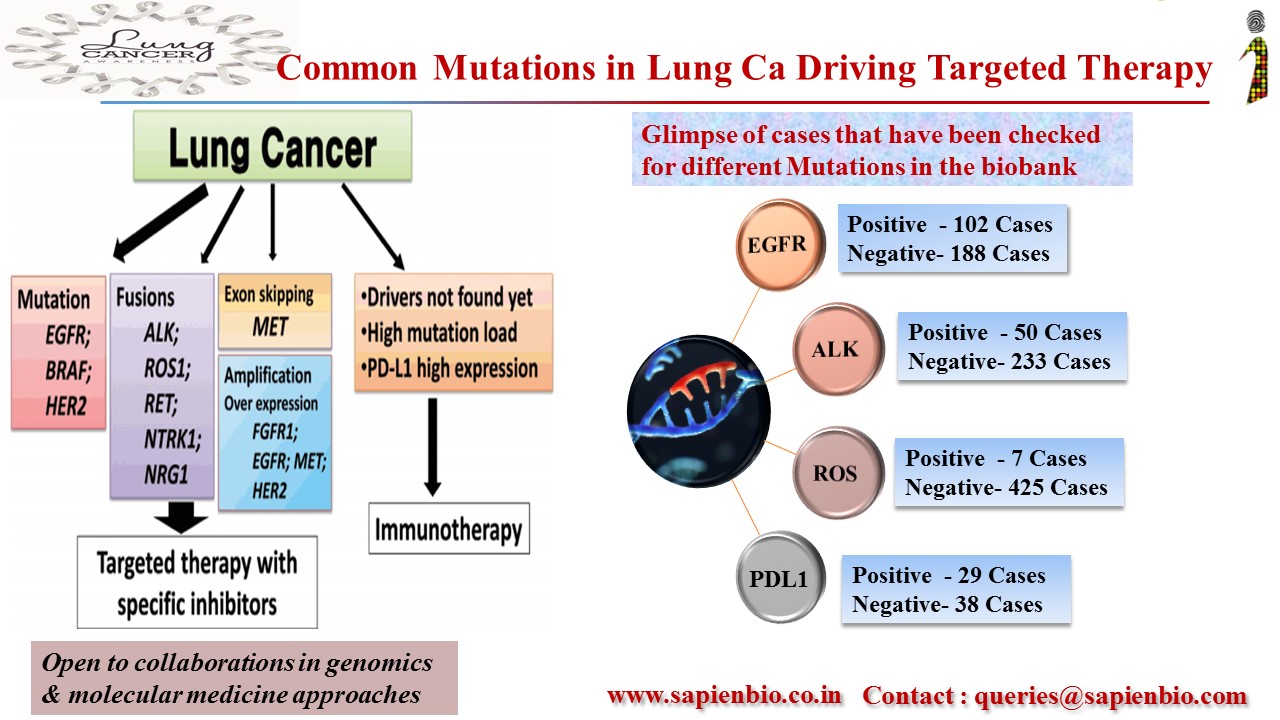Landscape of Kinase gene fusions in cancers
Tyrosine kinases such as ALK, RET and ROS1 are often activated by translocations or chromosomal rearrangements that result in increased oncogenic activity and are attractive candidates for targeted therapy. In our #biobank, we have identified many patient samples harbouring ALK, RET and ROS1 rearrangements by NGS.
FDA approved drugs such as Crizotinib (Xalkori, #Pfizer), Ceritinib (Zykadia, #Novartis), and Alectinib (Alecensa, #Roche) that target the kinase activity of ALK; Pralsetinib (Gavreto, Roche) targeting RET fusions in NSCLC; Entrectinib (Rozlytrek, Roche) for ROS1+ metastatic NSCLCs, and novel drugs in #clinicaltrials offer promising therapeutic approaches for not just lung but also breast, colorectal and other solid tumours.




Recent Comments